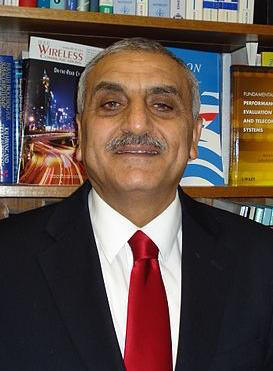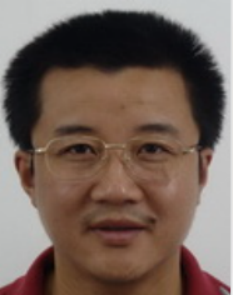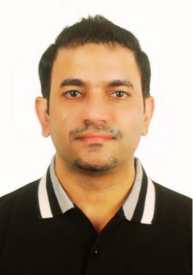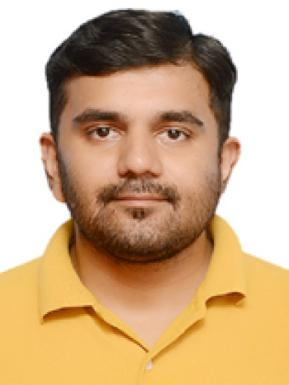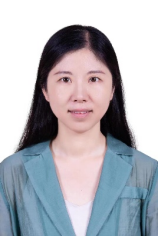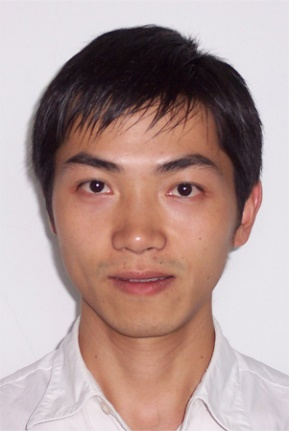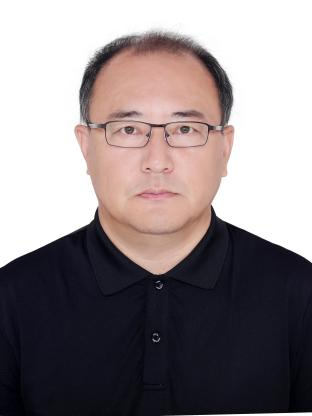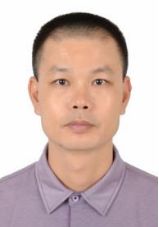
|
|
|
Keynote Speakers |
|
|
Prof. Mohammad S. Obaidat
Life Fellow of IEEE, Fellow of AAIA, Fellow of FTRA, Fellow of AIIA and Fellow of SCS Professor Mohammad S. Obaidat is an internationally known academic/researcher/scientist/ scholar. He received his Ph.D. degree in Computer Engineering with a minor in Computer Science from The Ohio State University, Columbus, USA. He has received extensive research funding and published To Date (2023) over One Thousand (1,200) refereed technical articles-About half of them are journal articles, over 100 books, and over 70 Book Chapters. He is Editor-in-Chief of 3 scholarly journals and an editor of many other international journals. He is the Editor-in Chief of the Wiley International Journal of Communication Systems and Founding Editor-in Chief of Wiley Security and Privacy Journal. He is also the founding Advisory Editor of the Cybersecurity and Applications Journal, KeAi. Moreover, he is founder or co-founder of 5 IEEE International Conferences. Among his previous positions are Advisor to the President of Philadelphia University for Research, Development and Information Technology, President and Chair of Board of Directors of the Society for Molding and Simulation International(SCS), Senior Vice President of SCS, SCS VP for Membership and SCS VP for Conferences, Dean of the College of Engineering at Prince Sultan University, Founding Dean of the College of Computing and Informatics at The University of Sharjah, Chair and tenured Professor at the Department of Computer and Information Science and Director of the MS Graduate Program in Data Analytics at Fordham university, Chair and tenured Professor of the Department of Computer Science and Director of the Graduate Program at Monmouth University, Chair and Professor of Computer Science Department at University of Texas-Permian Basin, Distinguished Professor at IIT-Dhanbad, Tenured Full Professor at King Abdullah II School of Information Technology (KASIT), University of Jordan, The PR of China Ministry of Education Distinguished Overseas Professor at the University of Science and Technology Beijing, China and an Honorary Distinguished Professor at the Amity University- A Global University. He is now a Distinguished Professor at KASIT, University of Jordan. He is also a Distinguished Professor at SRM University, India. He has chaired numerous (Over 185) international conferences and has given numerous (Over 185) keynote speeches worldwide. He has served as ABET/CSAB evaluator and on IEEE CS Fellow Evaluation Committee. He has served as IEEE CS Distinguished Speaker/Lecturer and an ACM Distinguished Lecturer. Since 2004 has been serving as an SCS Distinguished Lecturer. He received many best paper awards for his papers including ones from IEEE ICC, IEEE Globecom, AICSA, CITS, SPECTS, DCNET, IEEE ICCCA, International conferences. He also received Best Paper awards from IEEE Systems Journal in 2018 and in 2019 (2 Best Paper Awards). In 2020, he received 4 best paper awards from IEEE Systems Journal and also in 2021 received the best paper award from IEEE Systems Journal. During his tenure as Founding Dean of College of computing and Informatics at University of Sharjah, the Computer Sciences program has been ranked by Times for Higher Education (THE) as NUMBER 1 in UAE and for the first time in the history of the University. He also received many other worldwide awards for his technical contributions including: The 2018 IEEE ComSoc-Technical Committee on Communications Software 2018 Technical Achievement Award for contribution to Cybersecurity, Wireless Networks Computer Networks and Modeling and Simulation, SCS prestigious McLeod Founder's Award , Presidential Service Award, SCS Hall of Fame –Lifetime Achievement Award for his technical contribution to modeling and simulation and for his outstanding visionary leadership and dedication to increasing the effectiveness and broadening the applications of modeling and simulation worldwide. He also received the SCS Outstanding Service Award. He was awarded the IEEE CITS Hall of Fame Distinguished and Eminent Award. He also received the Nokia Distinguished Fellowship Award and Fulbright Distinguished Scholar Award, among others. He is on the World's Top Career-long top 2% Scientists as per Stanford University recent list. In 2024, ScholarGPS has ranked him Number 1 Scholar Worldwide in Telecommunications and Telecommunication Systems Management. He was ranked recently by research.com agency as number ONE Computer Scientist and number ONE Scholar in Electronics and Electrical Engineering in Jordan. In recognition of his significant scientific contribution, Springer published in 2022 a book honoring his contributions in Computing, Informatics, Networking and Cybersecurity. It is entitled: Advances in Computing, Informatics, Networking and Cybersecurity - A Book Honoring Professor Mohammad S. Obaidat’s Significant Scientific Contributions. Prof. Obaidat is a Life Fellow of IEEE, a Fellow of AAIA, Fellow of FTRA, Fellow of AIIA, and a Fellow of SCS. Speech title: Enhancing Malicious Activity Detection in IoT Enabled Network and IoMT Systems by Metaheuristic Optimization and Machine Learning Schemes Abstract: The increasing prevalence of malicious activities in IoT-enabled healthcare and Internet of Medical Things (IoMT) systems necessitates robust intrusion detection mechanisms. This talk introduces a novel approach combining meta-heuristic optimization and machine learning techniques to analyze network traffic for enhanced detection accuracy. Our proposed method utilizes eleven chaotic maps and the K-Nearest Neighbor (KNN) algorithm to identify malicious activity in IoMT and IoT network systems. Recognizing the significance of feature selection in network traffic intrusion detection, we employ the Chaotic Grey Wolf Optimizer (CGWO) to select the most relevant and impactful features for learning strategically. Our approach demonstrates superior performance through comprehensive experiments compared to well-known meta-heuristic algorithms and prior art methods, as evidenced by various evaluation metrics. This research contributes to advancing intrusion detection systems in healthcare IoMT and IoT, offering a reliable and efficient solution to safeguard against evolving cyber threats. |
|
|
Assoc. Prof. Yonghui Wu Dr. Yonghui Wu, associate professor at Fudan University, visiting scholar at Stony Brook University, and adjunct professor at Quanzhou University of Information Engineering, the chair of the ICPC Asia Training Committee. He won three medals in ACM ICPC World Finals for Fudan University. His book series “Collegiate Programming Contests and Education” has been published in simplified and traditional Chinese and English: the former by respective publishers of mainland China and Taiwan, and the latter, the first book’s translation, by CRC Press. Since 2013, he has been giving lectures not only in China, but also in other countries. Talk Title: Curriculums and the Teaching and Experimental Training System for Solving Problems by Programming Abstract: Programming technologies are the implementation technologies for the society and all people's quality. All professions like “tools”, including programmers, will be replaced by AI technologies in the foreseeable future. Improving students' abilities of computational thinking and mathematical thinking for solving problems by programming is the breakthrough point for computer education. Curriculums and the teaching and experimental training system for "solving problems by programming" is introduced. And informatization technologies and AI tools are used in the blended learning process, to manage homework and examinations, and to evaluate the teaching effectiveness. Innovations and effects for these works are showed. These works polish students’ programming skills efficiently, and meet the requirements for computer professionals in the age of AI. |
|
|
Assoc. Prof. Anas Bilal Dr. Anas Bilal, an accomplished scholar and innovator, earned his B.S. degree in Telecommunication and Networks from Iqra University, Pakistan, in 2013, followed by an M.S. degree in Electrical and Electronic Systems from the University of Lahore, Pakistan, in 2016. He achieved his Ph.D. in Electronics Science and Technology from Beijing University of Technology, China, in 2021. Currently, he serves as an Assistant Professor and Undergraduate Supervisor at the Software College, Hainan Normal University in Haikou, China. Dr. Bilal has made significant contributions to the field, authoring over 50 technical articles in esteemed scientific journals and conference proceedings. His research is at the forefront of Artificial Intelligence, Computer Vision, Image Processing, Medical Imaging, Remote Sensing, and Pattern Recognition. He is dedicated to advancing image processing and computational communication methods, developing pioneering techniques for medical and remote sensing imagery. An esteemed Senior Member of IEEE, Dr. Bilal holds multiple prestigious editorial and advisory positions. He is an Editorial Board Member of Discover Computing, an Academic Editor for PLOS ONE and CMC Journal, and an Advisory Board Member for the Journal of Social Sciences Advancements. Additionally, he has been an influential figure in organizing international conferences, serving as the International Advisory Chair at BDAITM 2023 in China, the Program Chair at ICPPOE 2022, ICAICT 2023, and a Member of the Technical Program Committee at AIIPCC 2023, among others. Dr. Bilal is also a senior member of the Institute of Electrical and Electronics Engineers (IEEE), the IEEE Computer Society Technical Community on Computer Architecture, and the IEEE Young Professionals. His dynamic leadership and innovative research continue to propel advancements in technology and engineering. Talk Title: Are We Too Dependent on Medical Imaging? Balancing Risks and Resources Abstract: Medical imaging plays a crucial role in modern healthcare, helping diagnose, treat, and monitor a wide range of conditions. However, growing dependence on these technologies has sparked concerns about overuse, leading to unnecessary scans, patient anxiety, and strain on healthcare resources. This speech addresses the delicate balance between under- and over-imaging, especially in the context of ongoing resource limitations and the lasting effects of the COVID-19 pandemic. It stresses the importance of using medical imaging judiciously, ensuring that each scan is both necessary and effective in improving patient care. |
|
|
Researcher Uzair Aslam Bhatti Uzair Aslam Bhatti, is a researcher in Hainan Univeristy with a strong academic background in information and communication engineering, artificial intelligence (AI), machine learning, and image processing. He completed his Ph.D. at Hainan University, Haikou, Hainan, where he focused on information and communication engineering. His doctoral research contributed to advancements in these fields, equipping him with extensive knowledge and technical expertise in cutting-edge technologies. Uzair’s expertise extends beyond his current postdoctoral work in image processing. His areas of specialty include artificial intelligence, where he explores the development of intelligent systems; machine learning, focusing on creating models that can learn from data and improve over time; and image processing, which involves analyzing and manipulating images to extract useful information. These fields are integral to many modern technologies, and Uzair's contributions continue to play a vital role in advancing AI-driven innovations. Talk Title: Spectral Image Processing Techniques for Remote Sensing Data Abstract: Currently, there is a need for standardized data processing techniques able to take into account the special properties of hyperspectral data. Our main focus is on the design of techniques able to deal with the high-dimensional nature of the data, and to integrate the spatial and spectral information. Performance of the discussed techniques is evaluated in different analysis scenarios. To satisfy time-critical constraints in specific applications, we also develop efficient parallel implementations of some of the discussed algorithms. Combined, these parts provide an excellent snapshot of the state-of-the-art in those areas, and offer a thoughtful perspective on future potentials and emerging challenges in the design of robust hyperspectral imaging algorithms. |
|
|
Assoc. Prof. Ting Su Ting Su received the B.S. degree in communication engineering and the Ph.D. degree in electronic science and technology from the Nanjing University of Science and Technology, Nanjing, China, in 2006 and 2016, respectively. She has successfully completed her postdoctoral research at the Institute of Communications Engineering, Army Engineering University of PLA, Nanjing, in 2020. She is also an Associate Professor at Hainan University, Haikou, China. Her research interests include computational electromagnetic, radar signal processing, and wireless communications. Talk Title: Challenges and reforms of university classroom teaching in the context of AI Abstract: In the wake of the rapid development of artificial intelligence (AI), university classroom teaching is encountering a multitude of challenges, encompassing innovative teaching methodologies, course assessment practices, the preservation of academic integrity, and numerous other facets. The relentless march of technological advancements is propelling educational reforms forward. Consequently, there is an urgent necessity to augment teachers' proficiency in AI-related skills, while also prioritizing the fostering of students' quality abilities, critical thinking capabilities, and innovative consciousness. |
|
|
Assoc. Prof. Zhengjie Deng My main research regions are computer graphics and image processing, artificial intelligence, and computer education. Published 1 monograph and 3 invention patents; Hosted 3 national or provincial scientific research projects; Published over ten research papers. Served as the Director of the Key Laboratory of Artificial Intelligence Digital Media in Haikou City and the Director of the Artificial Intelligence Education Professional Committee of the Hainan Artificial Intelligence Society. Member of the Teaching Guidance Committee for Higher Education Institutions in Hainan Province. Received the certificate of "Other High level Talents in Hainan Province" from the Talent Development Bureau of the Hainan Provincial Committee of the Communist Party of China. One of the founders of the Haishi Children's Programming Education Team. Talk Title: Information Technology Education, Normal Students, Non-normal Students Abstract: The science and technology education is conducive to promoting the development of science and technology, thereby promoting national development and enhancing innovation capabilities. Technology education in higher education institutions is an important part of achieving this goal. Currently, information technologies such as artificial intelligence, big data, cloud computing, and cybersecurity are widely affecting people's lives. How to cultivate research-oriented and development oriented talents in the field of information technology, as well as teachers, is worth people's attention and research. This report takes the teaching design and implementation of the School of Information Science and Technology at Hainan Normal University as an example to introduce the training experience of normal and non normal students in the field of information technology, showcase some achievements, and propose some ideas for future design. |
|
|
Prof. Lianming Wang Lianming Wang was born in Baishan City, Jilin Province, China in 1972. He received his B.S.and M.S degrees in Electric Information Science and Technology in 1993 and in 1996 respectively from Northeast Normal University, Changchun, China and the Ph.D. degree in Mechanical and Electrical Engineering from Changchun Institute of Optics, Fine Mechanics and Physics, Chinese Academy of Sciences, Changchun, China in 2002. He is currently a professor in the College of Marine Information Engineering, Hainan Tropical Ocean University, Sanya, China. His research interest includes computer vision, image processing, bionic robot and educational informatization. Talk Title: A Preliminary Analysis of the Requirements for Computer Course Setting in Non Computer Majors under the Background of Emerging Engineering Education Abstract: Aiming at the demand for talent cultivation in the context of emerging engineering disciplines, this report addresses recommendations for the curriculum design of non computer majors in universities by analyzing the technological connotations and development trends of computer science, artificial intelligence, big data, robotics, etc. |
|
|
Prof. Zhong Wang Zhong Wang, Dean, School of Information Technology, Hainan College of Economics and business; Chairman, Hainan Province Computer and Electronic Information Vocational Education Teaching Guidance Committee; Vice President, Haikou Center of the China Computer Federation (CCF); Vice Chairman, Hainan AI Association; Executive Director, Hainan Province Computer Federation(HCF)1991. He earned the bachelor's degree in Mechanical and Electronic Engineering, Gansu Institute of Technology in 1991, and master's degree in Communication and Information Systems, Hainan University in 2008. He has hosted 1 National Level Teaching Resource Library Project, led 1 Education and Teaching Reform Project of the Ministry of Education, directed 2 Provincial-Level Education Research Projects, and participated in more than 10 Provincial-Level Education Research Projects. Moreover, he published over 30 academic papers in various domestic and international journals, authored 6 academic works and textbooks, obtained 2 patent achievements, received 1 provincial-level teaching achievement award in Hainan. His research interests is intelligent media and speech recognition. He obtained multiple honors and titles for his contributions to education and research in the field of information technology and artificial intelligence. Talk Title: Research and Practice on the Cultivation of Artificial Intelligence Professionals in Higher Education Abstract: In an era where artificial intelligence (AI) is transforming industries, economies, and societies at an unprecedented pace, the role of higher education in preparing the next generation of AI professionals cannot be overstated. The "Research and Practice on the Cultivation of Artificial Intelligence Professionals in Higher Education" workshop is a seminal event designed to address the challenges and opportunities in AI talent development within academic institutions. This workshop convenes a diverse group of academics, researchers, industry leaders, and policymakers to engage in a comprehensive dialogue about the integration of AI into higher education curricula. The aim is to explore innovative teaching methodologies, research advancements, and best practices that will equip students with the knowledge and skills necessary to excel in the AI field. The workshop's agenda is structured to cover a wide range of topics, including the design of AI-focused degree programs, the importance of interdisciplinary approaches, the role of industry partnerships, and the ethical considerations inherent in AI education. Participants will discuss the importance of aligning higher education AI programs with the dynamic needs of the tech industry, ensuring that graduates are not only technically proficient but also capable of adapting to the evolving landscape of AI applications. Keynote speakers and panelists will share their insights on the latest trends in AI research and its implications for educational frameworks. They will also present case studies from institutions that have successfully integrated AI into their academic offerings, providing practical examples of how to overcome common barriers in AI education. The workshop will emphasize the need for a balance between theoretical foundations and practical, hands-on experiences. Attendees will explore the potential of experiential learning, internships, and capstone projects to enhance the educational experience and prepare students for careers in AI. In sum, the "Research and Practice on the Cultivation of Artificial Intelligence Professionals in Higher Education" workshop is a critical forum for those committed to advancing AI education. By facilitating the exchange of ideas, the workshop aims to strengthen the pipeline of AI talent emerging from higher education institutions, thereby contributing to the continued growth and innovation in the field of artificial intelligence. |
